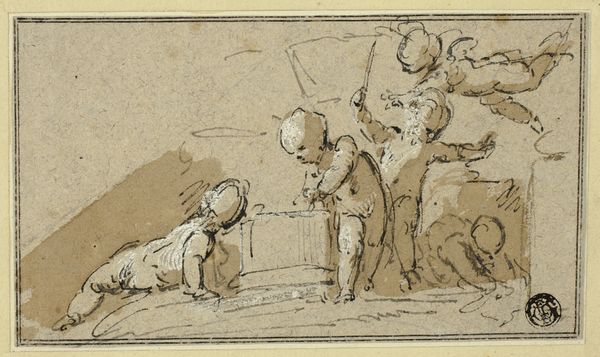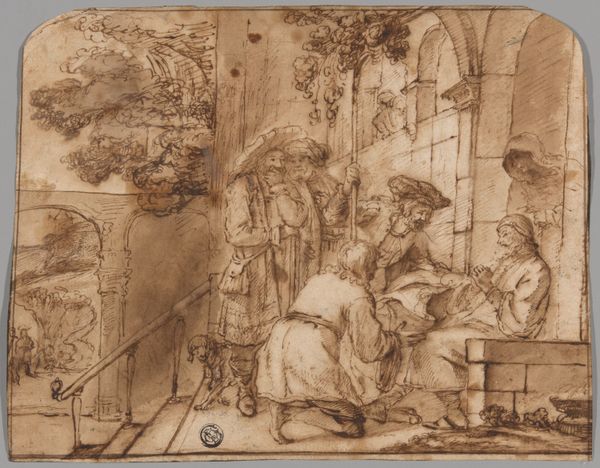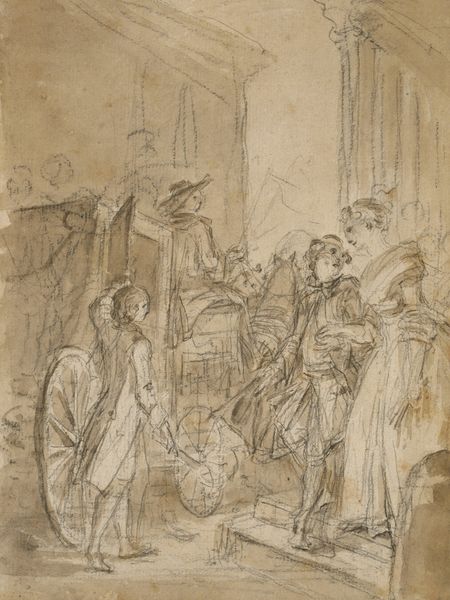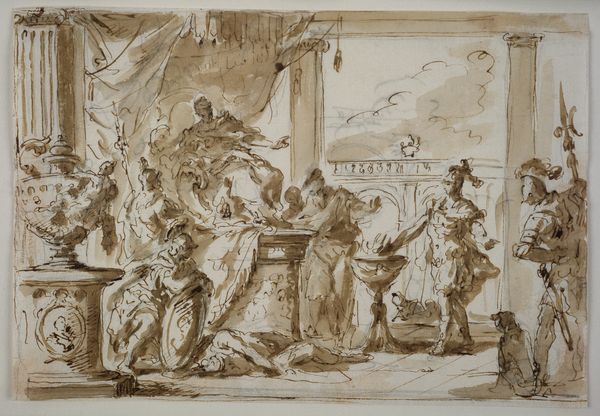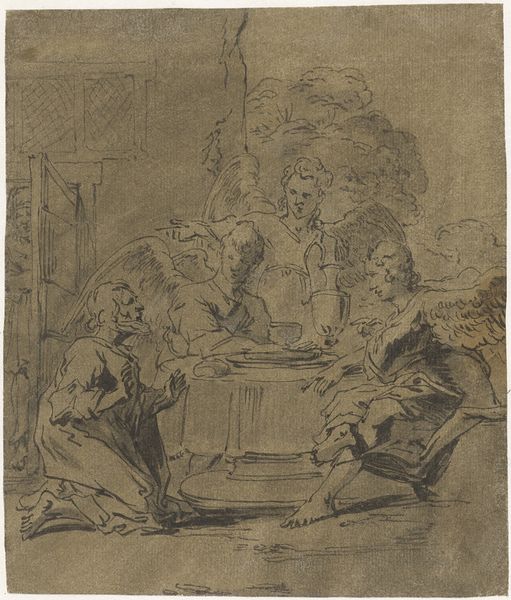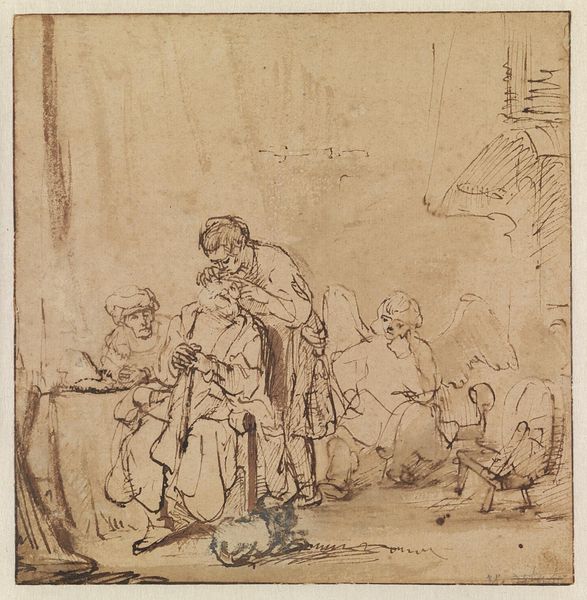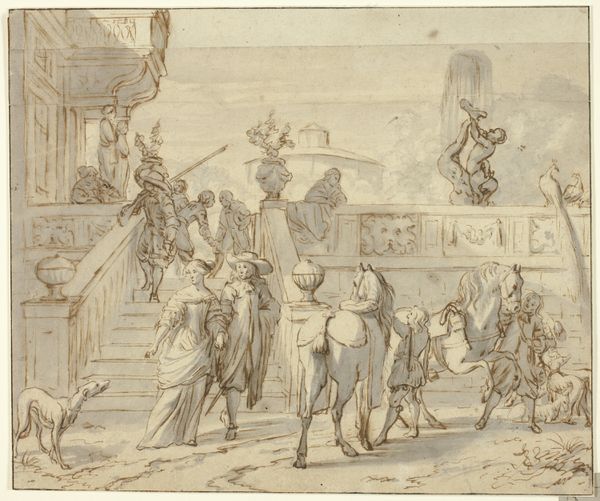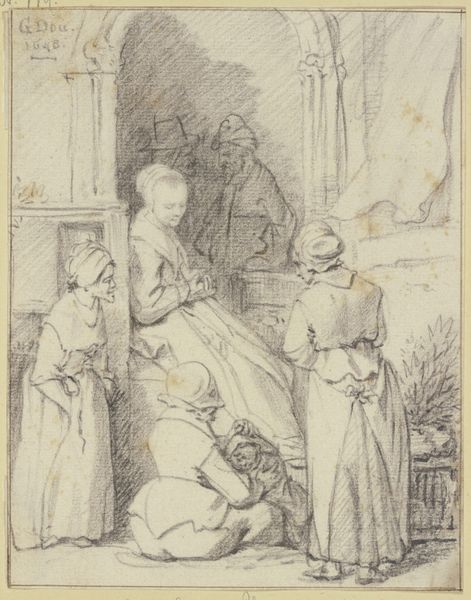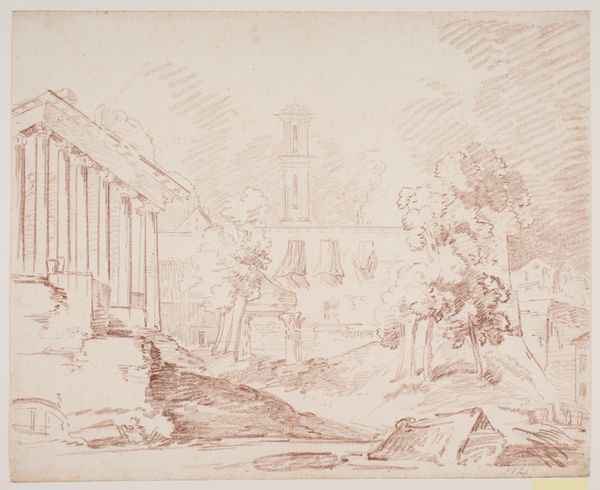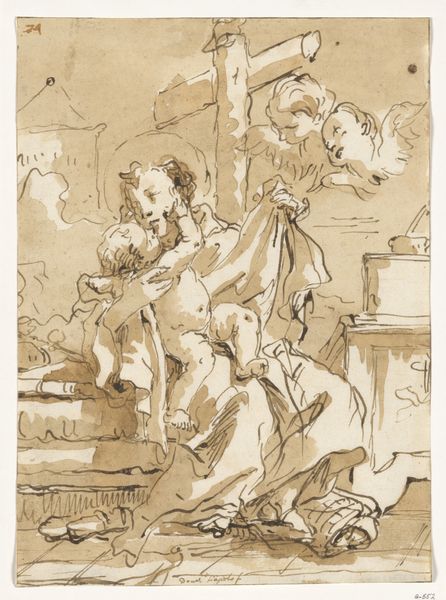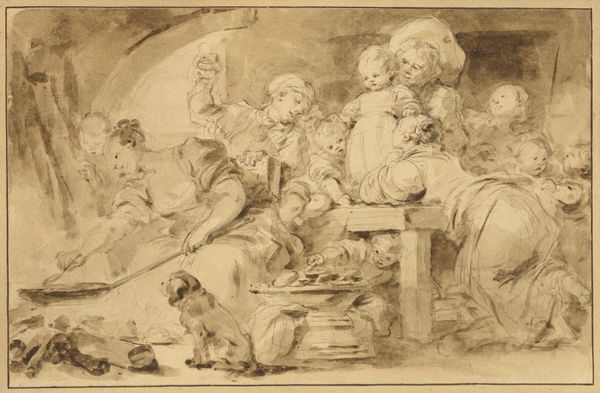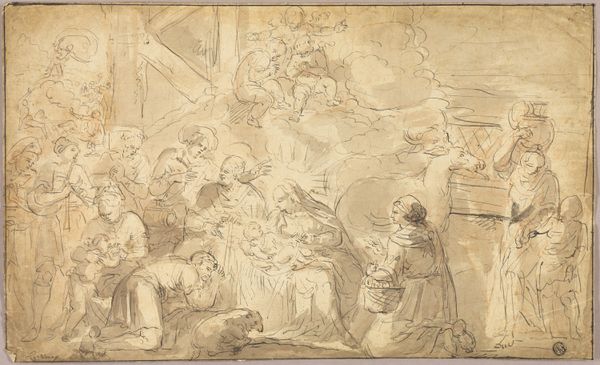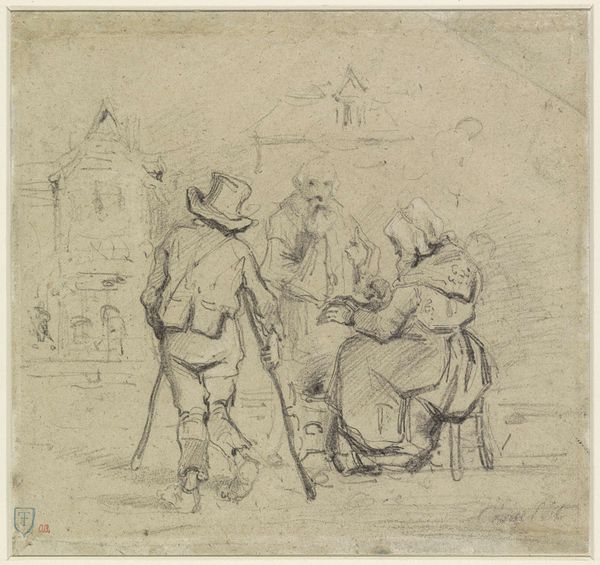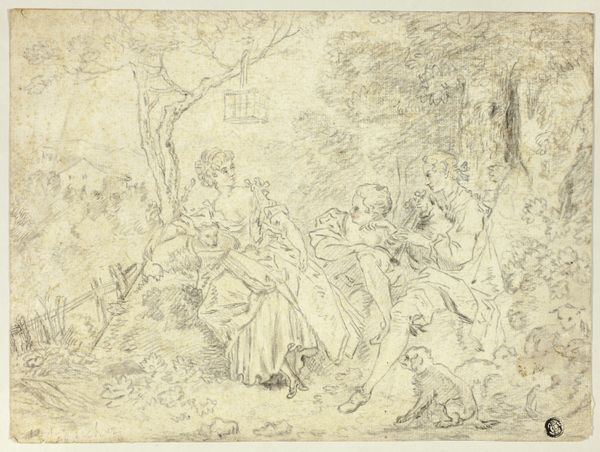
drawing, print, paper, ink, chalk
#
drawing
#
narrative-art
#
baroque
# print
#
figuration
#
paper
#
ink
#
chalk
#
history-painting
Dimensions: 200 × 250 mm
Copyright: Public Domain
Jacob de Wit made this pen and brown ink drawing, called 'Christ and the Woman of Samaria,' sometime in the first half of the 18th century. De Wit was from Amsterdam, and the Dutch Republic at this time was one of the most advanced capitalist economies in Europe. The Dutch Reformed Church dominated, but there was relative religious toleration, and de Wit was Catholic. Here, we see him depicting a scene from the Gospel of John. Christ encounters a Samaritan woman at a well, and tells her that he can offer her 'living water.' This story suggests the breaking down of social barriers, as the Samaritans were considered heretics by mainstream Jews. Although he painted many Catholic images, de Wit also received commissions from Protestant churches and wealthy individuals. We might think about the religious institutions of the time, and the new economic structures, and how they may have shaped the production and reception of this artwork. Historical sources such as church records, economic data, and biographical information on de Wit can help us to better understand the meaning of this drawing in its original context.
Comments
No comments
Be the first to comment and join the conversation on the ultimate creative platform.
